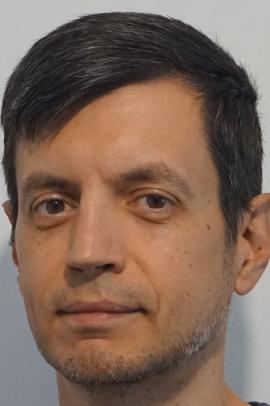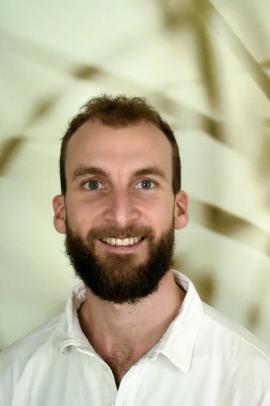Created by Jon Kabat-Zinn in 1979, this carefully considered curriculum is informed by neuroscience, psychology and educational methods that emphasise experiential, group and discovery learning. Regarded, internationally, as the ‘gold standard’, taking part in this programme gives people the opportunity to develop a personalised mindfulness practice, with the support of a small-group setting over 8 weeks (+1 day). The curriculum has been widely researched and yielded significant health benefits for people, physically and psychologically.
MBSR is suitable for all kinds of beginners. Due to the more intensive and sustained nature of this curriculum, coupled with the impact of modern living on our human nervous system.
MBSR is an educational course and involves a group of people coming together for 8 weeks of 2 ½ hour mindfulness training sessions. There is also an additional full day on retreat in the second half of the course.
The intention of MBSR is to support us in developing a regular practice of mindfulness in both formal and informal ways. Each week participants explore mindfulness ideas, practice meditations and discuss how mindfulness can be applied in everyday living. Mindfulness is a natural quality but one that is easily forgotten as we get into the habit of increasingly busy and frantic lifestyles.
As we practice paying attention, deliberately, to our moment-to-moment experiences with a non-judging and curious attitude, this grows our awareness and teaches us how to step out of ‘autopilot’ and the busyness of our constant ‘doing’. We experience ‘being’ in our world by bringing awareness to our physical body sensations and patterns of thoughts and emotions. We see that thoughts/emotions are not facts and just as quickly as they come to us, they can also leave as quickly. We learn how to receive their messages rather than being overwhelmed by them. Tuning in to our individual stress responses in new ways we can discover creative solutions to the challenges of daily life.
We see that we all get stressed. And stress isn’t a bad thing in and of itself. Stress is the feeling of being under pressure and symptoms might include anger and anxiety, difficulty sleeping, loss of appetite, breathlessness and chest pains. Short bursts of pressure can help us rise to meet a challenge but long-term and unrecognised, stress can have a major impact on our physical and mental health. When we are repeatedly overwhelmed by stress, our health, well-being and social relationships are damaged.
Scientific studies are showing that participants of MBSR courses (compared to those not taking the course or taking alternative courses) are consistently reporting less stress, tension and anxiety, greater concentration and empathy for others and generally feel more energised and engaged in life. Neuroscience is showing that regular practice really does change the physical structure of our brains. Even for those who are sceptical about the practices.
This programme is for adults who are interested in discovering how mindfulness may be applied in their lives. The skills are simple and easy to learn and can be practised by everyone.*
MBSR is recognised as complementary to traditional medical and psychological treatments, rather than a replacement, and has been proven effective in helping people living with:
- Anxiety
- Work, Family and Financial Stress
- Asthma
- Cancer
- Chronic Illness and Pain
- Depression
- Eating Disturbances
- Fatigue
- Fibromyalgia
- Gastro-intestinal distress
- Grief
- Headaches
- Heart Disease
- High Blood Pressure
- Panic Attacks
- Post-traumatic Stress Disorder
- Skin Disorders
- Sleep Problems
Each week participants also complete home practices: practising the exercises that have been learned that week using guided instructions from audio (MP3/CD) recordings that take up to 45 minutes each day and informal practices. The daily practices ensure that learning is based on participants’ own experiences.
Session 1: What is Mindfulness? As long as we are breathing, there is more right than wrong with us.
Session 2: Perception & Creative Responding: How we perceive the world and ourselves influences our experiences.
Session 3: Mindfulness of the Breath & Body in Movement: There is both pleasure and power in being present.
Session 4: Learning about our patterns of Stress Reactivity: Where you go, there you are.
Session 5: Working with Stress: Mindful responding instead of reacting.
Session 6: Stressful communications: Interpersonal mindfulness.
Full-Day of Practice
Session 7: Lifestyle choices:How can I best take of myself?
Session 8: A Mindful Life: Keeping your mindfulness alive.
*While mindfulness is a natural quality and seems simple, there are some conditions or life situations when participants need to be under the active care of health professionals and times when beginning an MBSR programme may not be indicated. These may include those with recent histories of addiction, suicidal ideation, trauma or psychosis and those currently in the middle of major life changes. As a preventative programme, it is recommended that people complete the course at a time when they are supported and can benefit fully from the mindfulness practices. Mindfulness is sometimes compared to physical exercise, as a form of mental training or fitness. And just like physical exercise, we need to work safely to minimise the risk of harm. Working with an appropriately qualified guide is key in supporting you through difficulties that may arise as you take the course. I follow the good practice guidelines for mindfulness teachers and I have completed an accredited and certified training pathway as a teacher of the MBSR curriculum.
Duration : 8 x 2.5 hour workshops + 1 retreat style day
Cost: €295 for the full course.





















